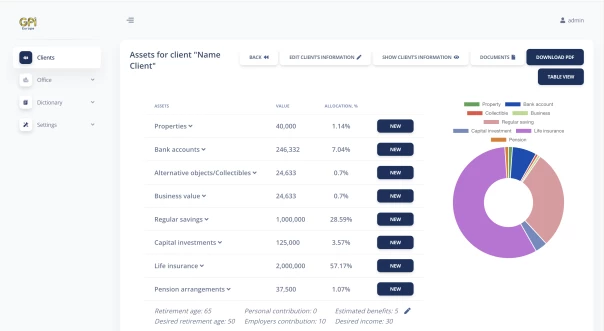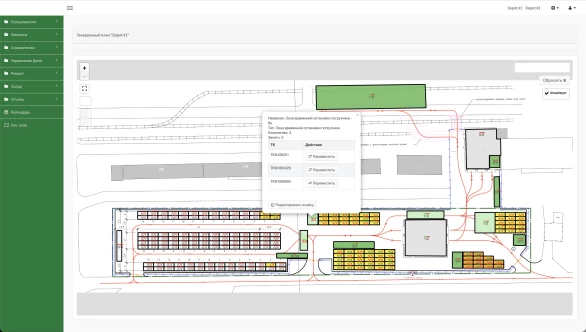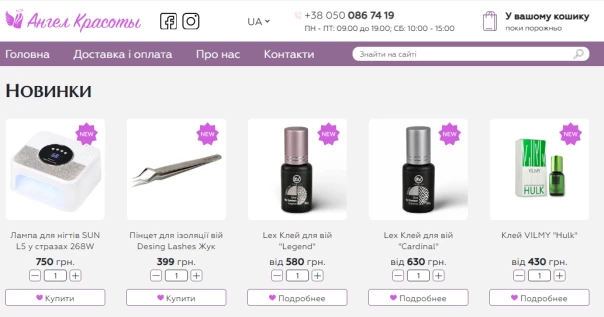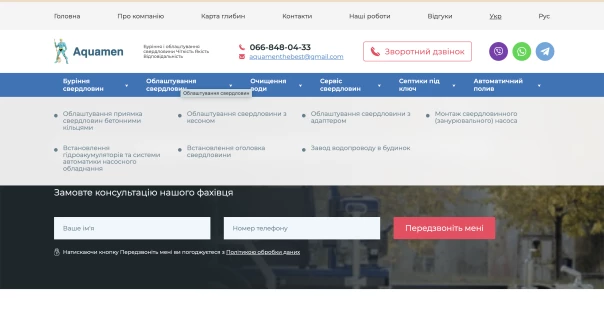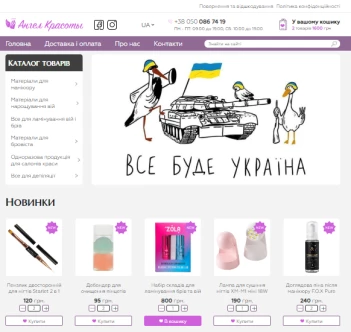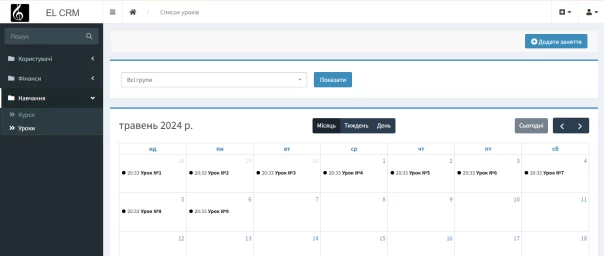We often hear the term "CRM" and its great role for business. However, people often don't fully understand what it is and what the CRM is intended for. Considering the countless CRMs on the market, the choice and understanding of the integration processes of this complex becomes something complicated and absolutely incomprehensible.
Definition of CRM system
A CRM system is an abbreviation of the English term – Customer Relationship Management. It is a software that is used to optimize, organize, and maximize the automation of processes between businesses and customers.
The system is used in various areas: marketing, sales process management, customer support and interaction, as well as attracting a new audience. The modern software is endowed with extensive functionality that makes it much easier for the owner to automate connection between business and customers.
The use of CRM systems
Every business based on direct interaction with customers needs an effective solution to completely control everything. Employees need to maintain a database, reporting, organize communication history, keep a schedule of calls, specific tasks, etc. Businesses often use mass mailings, during which customers receive important notifications and offers in an automatic mode. That's why the customer service department has a lot of work to do.
CRM technology virtually eliminates humans from the processes described above. The program is able to automatically perform tasks, combining all available information in a single source. The system prevents employees from having to perform routine work on a regular basis, which significantly increases the risk of unintentional errors and other situations. It is a modern, efficient and convenient approach to customer interaction.
CRM features for business
Special program (CRM) – is a classic software that is installed on workstations or company servers. There are a number of similar technologies for small, medium, and large businesses. However, they are all united by a number of tasks that the system must perform. This list includes:
- Consolidation of business customer data in one place. CRM systems collect contacts of the company's leads, direct customers, and information about them. At the same time, the complex provides convenient access to data and the ability to use it at any time.
- Tracking interaction and activity. The client and the business should be in direct contact - this is important for the company itself. CRM organizes this process by tracking all contacts with potential customers via messengers, phone, email, and other communication channels.
- Performance analysis. CRM allows you to receive detailed reports on the effectiveness of customer interaction.
- Automation of routine processes. This function is the basis of any system. Popular automation options are large-scale, hot mailings, customer notifications based on a prepared company template, and other operations.
A modern customer relationship management system is more than just a communicator between a company and its customers. The technology is able to solve almost all the company's tasks of establishing and optimizing communication channels with the customer audience.
Advantages of CRM
The modern market sets a high competition standard. This means that the company must make efforts to interest the buyer and realize its offers. With the growth of the audience, every customer is becoming valuable. In such conditions, a business that has a clear customer relationship management scheme gains an advantage.
CRM is a tool that provides a number of benefits to an entrepreneur. These include:
- Process efficiency growth. CRM technology is a computer system that does not experience fatigue, exhaustion, and other factors typical of humans. Moreover, the work of different departments of the company becomes more coordinated, because it is based on a single CRM center in which all tools are integrated.
- Automation. Probably this is one of the most important advantages of technology. Ensuring the regular execution of lower-level tasks (which every company has) significantly saves employees' time. For example, organizing and sending documentation, reminders, notifications, etc.
- Working with large amounts of data. Deploying a unified information repository is one of the most important business tasks. In an environment where each person's data must be processed properly, working with databases with thousands of data points can significantly slow down the processes of the entire enterprise.
- Task planning. In fact, it's been proven that manual work with a large number of variables leads to a deterioration in its quality. The CRM system controls the notification and fulfillment of tasks by people, making the process transparent and convenient. Even if a problem occurs at some stage, CRM monitoring will tell you at what step the failure occurred.
- Improved marketing. The tool tracks the audience's reaction to advertising offers, which gives an idea of how the sales funnel works at each stage of interaction. In particular, CRM provides insights into the most profitable areas of product sales. Such data allows you to adjust sales in a way that benefits your business.
- Access to valuable data from anywhere, at any time. Management of modern companies is often differentiated, and not tied to a specific location. With the development of cloud-based CRM services, task completion has become even easier. Remote work takes on a new meaning with the integration of such solutions.
- Collaboration with other services. Up-to-date CRM is a comprehensive solution. However, all-inclusive products rarely have practical effectiveness. It is much better to enable the complex to successfully interact with other software solutions. This is exactly the way a number of CRM system developers have gone, thereby providing users with an incredible level of flexibility when using services.
One of the biggest benefits of the tool is improved interaction with the end user. A competent approach to the user, providing them with offers that are really interesting to them, increases the chances that the client will recommend the company to their friends, acquaintances, and relatives. Thus, sales are growing, business is developing, so marketing is doing its job.
In fact, CRM systems demonstrate their real benefits from the very first sessions of use. The owner receives a reduction in the time required to perform specific tasks (sign a contract, reconcile reports, etc.), sales increase, and so does income.
An example of how a CRM system works
We have already discussed what a CRM system is, and now we'll look at practical examples of its use:
- sale of goods and services, retail trade;
- automotive industry;
- fashion and beauty industry;
- insurance industry;
- production, manufacturing;
- government activities;
- high technology and research;
- tourism, transportation;
- energy and others.
Software systems are being actively integrated into modern business, regardless of the field of activity.
Application reception
In order to keep sales up, companies need to process requests as quickly as possible. Customers expect fast service, they don't need to delay their request.
The CRM system automatically receives and redirects the request to a free specialist who continues to process it. A similar principle is used when working with contractors. The tool automatically accepts requests, regardless of the workload of the sales department.
Tracking channels for receiving applications
This function is aimed at analyzing which channels the customer uses more often. Why is this necessary: first of all, to organize a convenient form of interaction. Marketing is not aimed at a one-time use of a lead, which means that contact with a person must be customized and ready to use.
The technology not only determines the number of leads by channel, but also calculates the percentage of efficiency of their conversion into sales.
Customer processing and status change depending on the stage of the sales funnel
Funnel is a specific representation (textual or graphical) of the sequence that a customer goes through from the moment they contact an entrepreneur to the actual purchase. As a rule, a graphical diagram has the format of a triangle or a so-called Kanban board, in which each column is a separate step of interaction.
A company that uses a CRM system does not need to manually form and analyze the stages of customer interaction. The funnel generated by the tools is automatically updated as the customer moves to the end point of communication. The system independently monitors and changes statuses, which is quite convenient - the owner will be able to clearly see at what stage the interaction is slowing down or additional problems arise.
Closing of sales
If the user's interest has grown into a purchase, CRM will automatically transfer the client to the category of regular customers. Now the sales and marketing department will be able to periodically communicate with the person. Since the system initially recorded the channels through which the buyer went to the site, it will choose the most optimal method of communication. The rest is up to the sellers.
Document management
Sales is associated with the need to keep records. This is a normal practice for any company, but as the volume and number of active leads increase, document management becomes more difficult.
The CRM system can be used at any stage. Thanks to the database of ready-made templates, the technology will help to generate, for example, invoices and automatically send them to the client. The whole process is automated. In addition, CRM can work not only with client documents but also with internal ones.
Customer lifetime value (LTV)
LTV represents the way a customer interacts with a business. This is an important parameter that helps to assess the stage of a particular person - whether they are an interest, a buyer, or a repeat customer.
CRM allows you to flexibly manage customer relationships using the data:
- CX - customer experience;
- CS - customer service.
The system gives the business owner an understanding of the customer's habits, requirements, and preferences when evaluating the product. This makes it possible to significantly increase the customer's LTV.
Analytics
At all stages of the company, the CRM system provides access to in-depth analytics of its activities. The data is presented in the form of easy-to-understand graphs and dashboards. A company with this level of analytics becomes more predictable in its work. Managers are able to visually assess the current state of affairs, staff workload, the effectiveness of communication with customers, and many other parameters.
Most popular CRM systems
These are the top solutions for business in Ukraine:
- amoCRM;
- SalesDrive;
- KeyCRM;
- Sales Creatio;
- PipeDrive:
- OneBox.
There are highly specialized CRM systems for specific areas of activity. For example, CleverBox CRM is designed to automate the workflows of beauty salons, cosmetology centers, and small clinics.
CRM technical features: integration and customization
The deployment of a CRM system is carried out in several stages:
- determination of the company's goals, the choice of the system depends on this;
- CRM selection - having determined the directions of development, you need to choose the system that best suits the tasks: growth, sales control, work with the client base, etc;
- tool integration plan: this includes the CRM launch project, timeframes, resources for launch, etc;
- preparation of data that will be uploaded to the software package;
- staff training.
The most important point in the whole process is to choose a reliable contractor. This contractor will perform all the work on customizing the complex in accordance with the customer's requirements.
If you are interested in CRM, you can find out what it is from Skylex specialists. We provide professional website development and integration services for complex CRM systems specifically for business projects.
Existing solutions or custom CRM
A custom CRM system developed from scratch is an unusual kind of software. Every business is a complex web of dozens of processes that are completely unique and unlike any other. They need to be taken into account and converted into working code, which is no ordinary task. You need a team of developers who not only have programming experience but also a deep understanding of technology.
Your own CRM is reasonable when:
- the business has a number of unique management models that are not provided in off-the-shelf products;
- there is a sufficient budget for the project;
- data volumes are too large for existing CRMs.
Large businesses use their own products, with their own department of specialists to maintain the system. In other cases, it is possible to get by with ready-made solutions. There are plenty of them today.

